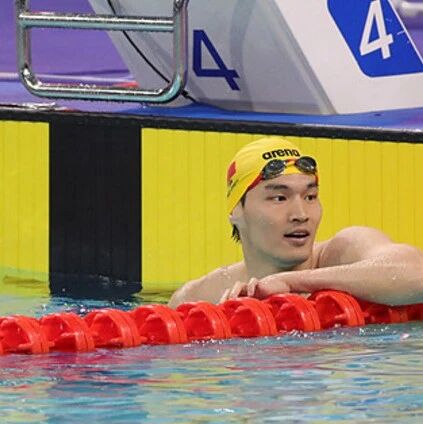Men's 100m Freestyle World Record: Climbing to New Heights (8)
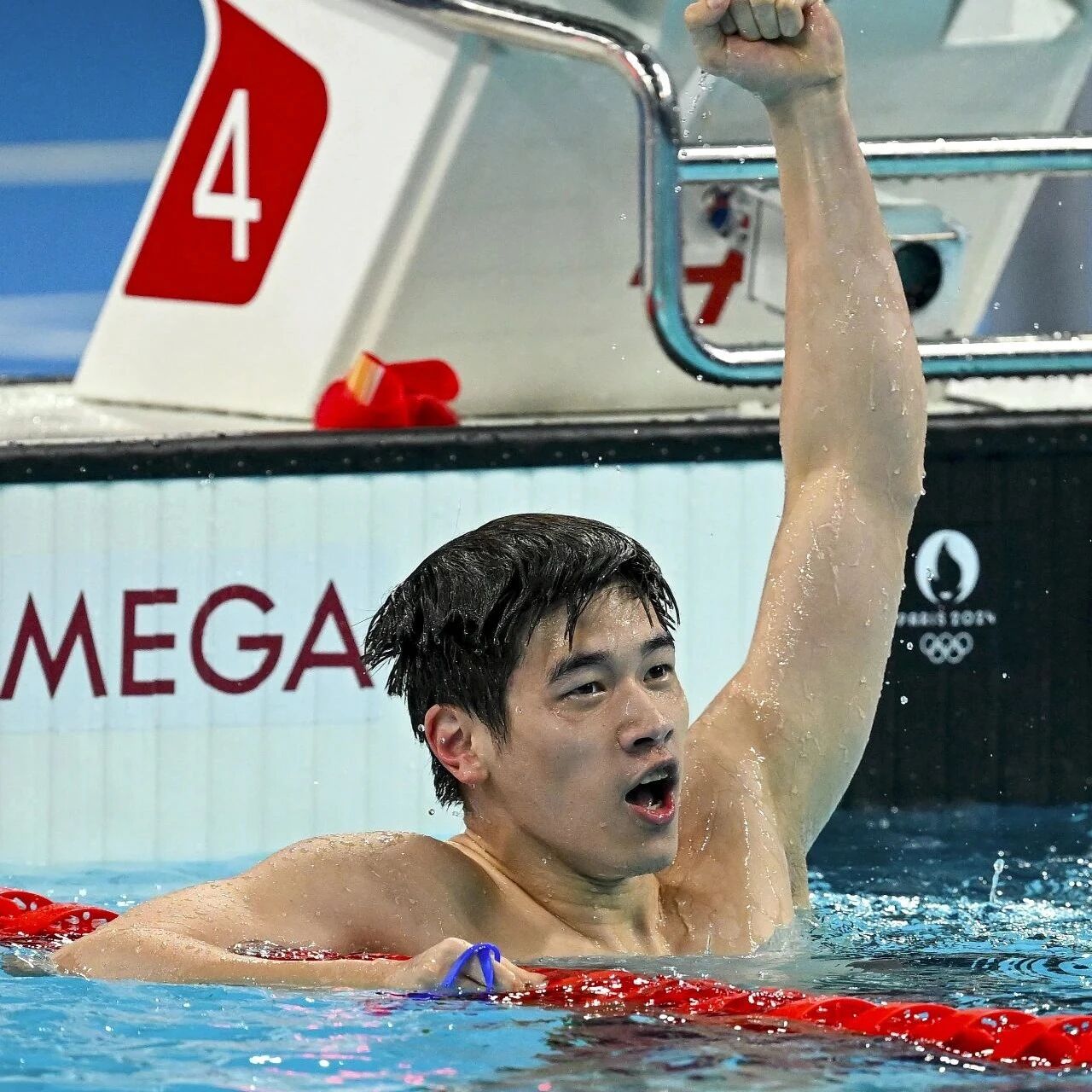


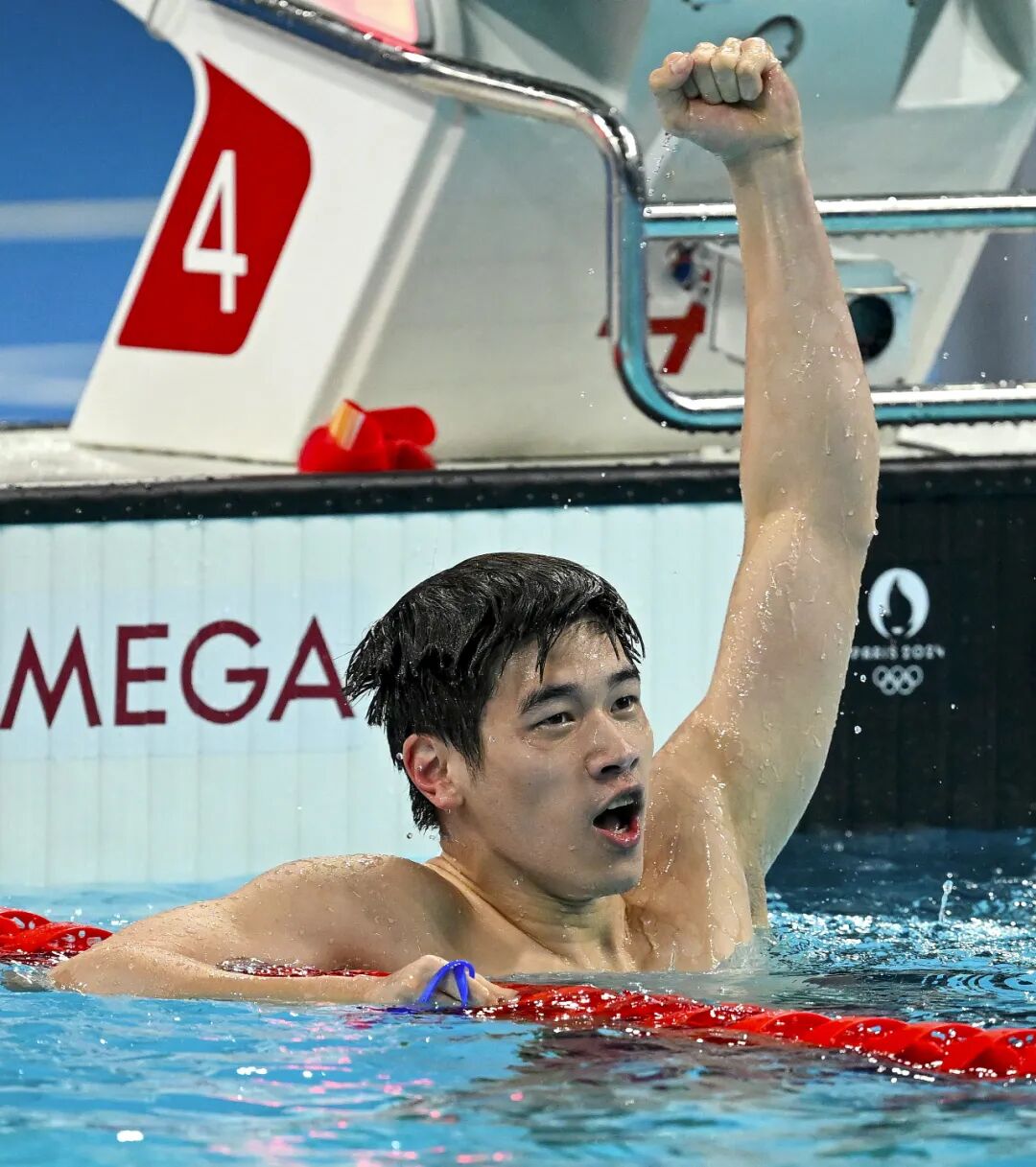
Pan Zhanle
2004.8.4 – China
By the time this series reaches its sixth installment, a reader commented: "Can’t wait to see how you’ll praise Pan Zhanle next!" In this edition, we’ll introduce Pan Zhanle, the current world-record holder. However, instead of showering him with praise, we’ll focus on objectively sharing with you some key details about his remarkable journey—both before and after he broke two world records. After all, in the world of competitive sports, raw talent and outstanding achievements have always been the sole yardstick for measuring success. From that perspective, Pan Zhanle hardly needs any further accolades: clocking an incredible 46.40 seconds, he became the second-ever Asian athlete since 1932 to claim the top spot on the Olympic men’s 100-meter freestyle podium. What’s more, his historic margin over his closest competitor cements his legacy—already etched in the annals of swimming history the moment he crossed the finish line in the 2024 Paris Olympics men’s 100-meter freestyle final. In other words, no matter how much you try to praise him, it’s simply impossible to do him justice.
In the 9-day swimming competition at the 2024 Paris Olympics, only two world records were broken: Chinese swimmer Pan Zhanle clocked a stunning 46.40 seconds in the men’s 100m freestyle final, shattering his own previous world record of 46.80 seconds set at the Doha World Championships in February; meanwhile, American swimmer Bobby Finke delivered a remarkable performance in the men’s 1500m freestyle final, finishing in 14:30.67 and surpassing the previous mark of 14:31.02, which had been held by China’s Sun Yang since the 2012 London Olympics.
Both of these world records are heavyweight achievements, but Pan Zhanle's record is even more astonishing—
In the final, Pan Zhanle demonstrated absolute dominance from the very start, pulling away effortlessly and leaving his rivals—including the former Olympic champion and world-record holder—no chance to mount a comeback. He finished more than half a body length ahead of runner-up Kyle Chalmers, the 2016 Rio Olympics gold medalist (47.48 seconds), clocking in over a full second faster! Such a commanding performance is rare in the Olympic men’s 100-meter freestyle event. Moreover, this 0.4-second improvement represents the largest-ever global-standard margin of advancement in the event since 1976.
When reporting on Pan Zhanle's victory, foreign media used phrases like "Pan Zhanle brilliantly outclassed his rivals," "Swimming legends competing in the same pool paled in comparison to him," and "His commanding win elevated the 100-meter freestyle to breathtaking new heights." On December 30, 2024, *Swimming World*, a prestigious U.S.-based swimming magazine, published an article reviewing the top 10 "most outstanding performances" in the global swimming scene for 2024. Pan Zhanle's electrifying performance in the men’s 100-meter freestyle final at the Paris Olympics was ranked No. 1 among these remarkable achievements of the year. The article delved into why breaking the world record in this event carried such immense significance.
After the era of sharkskin swimsuits, breaking the men’s 100-meter freestyle world record became incredibly challenging—so much so that it remained untouched for over a decade. It wasn’t until August 2022, when Romania’s Popovici shattered the previous mark set by Cesar Cielo in 2009 while wearing a high-tech sharkskin suit, lowering the world record from Cielo’s iconic 46.91 seconds to 46.86—a mere 0.05-second improvement. Just six months later, at the 2024 Doha World Swimming Championships, Pan Zhanle pushed the already impressive record even further, slicing off another 0.06 second to bring it down to 46.80 seconds. To put this into perspective, over the preceding 15 years, the men’s 100-meter freestyle world record had only been improved by a minuscule 0.11 seconds. Yet in just two races separated by half a year, Pan Zhanle managed to shave off a full 0.4 seconds—making his Olympic performance not only the greatest triumph in swimming history but also a bold redefinition of what success truly means in the sport.
Because Pan Zhanle's world record was so astonishing, after the race, he didn’t receive only praise—instead, his achievement was met with skepticism, including comments like “impossible” and “unreal.” But then, why exactly was Pan Zhanle able to “brilliantly” outperform these elite competitors, leaving stars like Chad le Clos and Aleksander Popov in the shadows? Let’s first examine the race strategy Pan Zhanle employed.
This year’s Olympic swimming pool is less than 3 meters deep (2.2 meters), and theoretically, the shallower the pool, the greater the surface waves will be under the same disturbance conditions—potentially disrupting athletes' performance. In earlier heats, Pan Zhanle even found himself "stunned by the waves, forcing him to restart." That’s why, in the final, he opted for an extremely aggressive "record-breaking" strategy: right from the start, he surged ahead at a pace faster than any of his competitors, dominating both physically and mentally while maintaining this commanding lead throughout the race. Thanks to his relentless early dominance, he remained completely unaffected by the waves created by his rivals—instead, it was the other swimmers who ended up battling through the turbulence he generated.
On the other hand, whether we can win—and by how much—ultimately depends on our opponent’s performance. If we perform well and manage to swim faster than them, victory is within reach. Even if we’re not the fastest ourselves, a slower opponent can still lead to our triumph. In this case, Pan Zhanle delivered an outstanding performance while his rivals struggled to meet their usual standards. Take Chalmers, for instance: he finished second at the 2021 Tokyo Olympics with a time of 47.08 seconds and went on to claim the 2023 Fukuoka World Championships title in 47.15 seconds. Yet this time around, his 100-meter swim clocked in at 47.48 seconds—a clear step back from his usual pace. Similarly, Popović, who placed third this time with a mark of 47.49 seconds, had already shown signs of decline earlier this year, recording 46.88 seconds in June. And let’s not forget Alex from the U.S., who also posted a disappointing 47.96 seconds this time—compared to his strong 47.08-second showing during the U.S. Olympic trials in June—leaving him and teammate Gillian tied for last place in seventh and eighth positions, respectively.
After finishing his race, Pan Zhanle remarked with a laugh, "How can they be so slow?" But this wasn’t his way of showing off—these top-tier competitors in the same event were indeed swimming far below their usual performance levels. That’s precisely why the final showdown unfolded as it did: Pan Zhanle surged ahead by about a body length to claim victory over these European and American athletes.
In fact, anyone who’s followed the men’s 100m freestyle at international competitions over the past few years would clearly see that Pan Zhanle’s strength is beyond question. He’s already dipped below 47 seconds multiple times—likely making him the athlete who has achieved this feat most often in the world. Far from being a sudden breakout star, his steady progress has been unmistakably evident, and it was only a matter of time before he shattered the world record—
At the 2022 Budapest World Championships, 18-year-old Pan Zhanle clocked a stunning 47.65 seconds in the 100m freestyle semifinal, equaling the national record previously held by Ning Zetao. This remarkable performance made him the second Chinese male swimmer in history to break the 48-second barrier in the event, just 0.09 seconds shy of the Asian record. In the final, he finished fourth with a time of 47.79 seconds, delivering the fastest 24.84-second split in the second half of the race—and coming within a razor-thin 0.08 seconds of the podium.
At the 2022 World Short Course Swimming Championships held in Melbourne, Pan Zhanle finished sixth (45.77) and broke the Asian record in the 100-meter freestyle short course, falling just 0.33 seconds behind fourth-place finisher Popovici.
At the 2023 Fukuoka World Swimming Championships, Pan Zhanle had already begun to challenge Popovici. In the men’s 100-meter freestyle final, he finished fourth (47.43), clocking 0.40 seconds faster than Popovici—and just 0.01 second off the podium—while setting a new Asian record. Later, in the men’s 4x100-meter freestyle relay preliminaries, he swam a blistering 47.27 seconds, helping his team secure a silver medal in the men’s 4x100-meter medley relay as well.
Following his impressive performance at the 19th Asian Games in Hangzhou this September 2023, where he swam a time of 46.97 seconds, Pan Zhanle became the first Asian athlete to break the 47-second barrier. He also marked the fifth swimmer in history to achieve a sub-47-time while wearing a textile swimsuit—just 0.11 seconds shy of Popovici’s world record. After the race, Pan Zhanle admitted in an interview that his swim wasn’t quite up to par, noting he’d specifically aimed for the world record before the event. Still, falling just 0.1 second short left him feeling slightly disappointed. But don’t worry—he even called out to Popovici, cheering, “Let’s push together!”
Then, on the opening night of the 2024 Doha World Championships, Pan Zhanle stunned the world by setting a new men’s 100-meter freestyle world record, instantly capturing global attention. He also led his three teammates to clinch the gold medal in the men’s 4x100-meter freestyle relay. His blistering time of 46.80 seconds not only eclipsed the previous world record of 46.86 seconds, set by Romania’s David Popovici, but also marked a remarkable six-tenths-of-a-second improvement—making him the first Asian man to hold the prestigious 100-meter freestyle world record.
In the men’s 100m freestyle final, Pan Zhanle clinched the gold medal with a time of 47.53 seconds. This marks China’s first-ever World Championship gold in the men’s 100m freestyle since 2015. Reflecting on his first-ever world title and the upcoming Paris Olympics, Pan Zhanle said: "I’m incredibly proud to have won this gold medal—it’s my first-ever individual international medal. Although my final result wasn’t perfect, I see it as a breakthrough. It fuels me to keep pushing harder. I’m confident I’ll break the world record again someday, though I’m not sure exactly when. Maybe I can achieve that goal at the Paris Olympics." He added, "I truly believe I can swim even faster than I did today."
So, at the Paris Olympics, Pan Zhanle was clearly aiming to break the world record—because no one knows his true potential better than he does, along with his dedicated coaching team. Of course, beyond his undeniable talent and unwavering determination to achieve his goal and succeed, there’s another factor worth noting: the subtle "assist" provided by the external distractions off the pool deck. As he himself put it, he’d been "holding that breath"—a phrase that resonated deeply during the Paris Games (and if you’re not sure what it means, just check out the news coverage from the event). This highlights the young athlete’s remarkable ability to stay focused amid chaos, turning pressure into pure motivation. After all, this kind of mental resilience is precisely what sets top-tier athletes apart—and makes it their most invaluable quality.
The men's 100-meter freestyle has long been dominated by European and American athletes, often seen as a symbol of white supremacy. For Asian swimmers, breaking the 48-second barrier in this event feels akin to sprinters hitting the elusive 10-second mark in the 100 meters—both represent monumental milestones. So far, across Asia, only a handful of athletes have managed to dip below 48 seconds: Ning Zetao, South Korea’s Hwang Sun-woo, and China’s Pan Zhanle, among others. Yet Pan Zhanle has repeatedly pushed the limits in this region, ultimately reaching the pinnacle of men’s 100-meter freestyle—and in doing so, he’s struck a nerve with some observers. It seems that when success becomes routine, even victory feels inevitable. But when faced with defeat, instead of reflecting on their own mistakes, these critics tend to view others through a biased lens. Take, for instance, the 2012 London Olympics, where Ye Shiwen stunned the world by breaking the world record to win gold in the women’s 400-meter individual medley. Her achievement sent shockwaves across the Western sports community. Surprisingly, though, her historic world record wasn’t officially recognized by FINA (the International Swimming Federation, now rebranded as World Aquatics) until 2022—more than a decade later.
The Olympic motto is "Faster, Higher, Stronger—Together." Each world record in every sport represents a monumental milestone in humanity’s relentless pursuit of self-improvement and the relentless push beyond our limits. Take, for instance, the men’s 100-meter freestyle world record: from the earliest recorded time of over one minute to breaking the 60-second barrier, then 50 seconds, 49 seconds, and finally sub-48 seconds—this remarkable journey underscores not only the continuous evolution of swimming techniques and training methodologies but also embodies the indomitable spirit of athletes across generations who dared to challenge and surpass their own boundaries. From Zoltán Halmay and Duke Kahanamoku to Johnny Weissmuller, Mark Spitz, Matt Biondi, Alexander Popov, Michael Klim, Pieter van den Hoogenband, Eamon Sullivan, Alain Bernard, César Cielo, and most recently David Popovici and Pan Zhanle—these champions of their respective eras have relentlessly pursued excellence, driving the men’s 100-meter freestyle world record ever higher, reaching heights that were once unimaginable just a century ago.
After the men’s 100m freestyle final at the 2024 Paris Olympics, Popovici was the first to embrace the victorious Pan Zhanle. When an ill-intentioned foreign journalist questioned him about how he felt seeing Pan once again break another incredible world record, Popovici— who had previously exchanged swim caps with Pan—responded succinctly: "If there’s no evidence, don’t doubt others. Pan Zhanle’s record is our biggest motivation; we’re not going crazy over it. Congratulations to him—that’s exactly what sports are all about." Compared to those who approach the situation with biased perspectives, Popovici’s open-mindedness and his courageous sportsmanship in embracing both victory and defeat are truly admirable.
"On September 21, 2024, during a speech at Nankai University in Tianjin, Pan Zhanle famously declared: 'Records are meant to be broken—and monopolies, even more so, must be shattered.' Indeed, once a young athlete whose dream was to break the world record, he has now become the very benchmark that his successors strive to surpass. Without a doubt, the world records he set will one day fall to those who follow—after all, as the saying goes, 'the Yangtze River’s waves push forward the ones ahead,' and that’s precisely how competitive sports have always worked.
Just like our series highlights, over the century-long history of men’s 100-meter freestyle swimming, countless legendary stars have risen to fame, dazzling audiences with their brilliance—but every great champion, no matter how iconic, eventually steps off the stage. Yet when that moment arrives, we hope swimming fans will still stand up and cheer for Pan Zhanle. After all, this young man, who began swimming at the age of four and later committed himself to training 15,000 meters every single day after joining the professional team, has poured his heart and soul into chasing his childhood dream. Fearless, relentless, and determined to forge ahead, he has embodied the true spirit of 'Chinese strength, Chinese resilience, and Chinese elegance.'"
He once thrilled us so deeply.
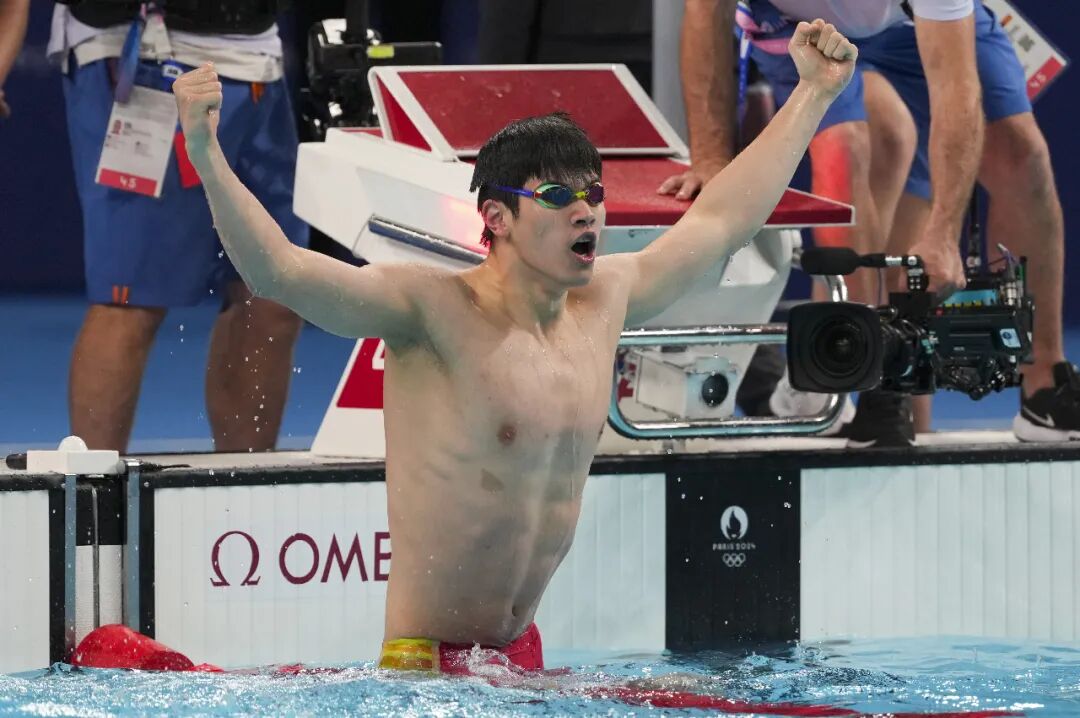
Pan Zhanle's Quotes:
"Records are meant to be broken—especially monopolies. Behind every record-breaking effort lies a relentless push, both on and off the field: 15,000 meters every single day, without fail. Today is no different from tomorrow, and morning holds no distinction from afternoon. After all, it’s my responsibility to showcase China’s strength, spirit, and remarkable character to the world."
"Those who looked down on us—finally, we’ve taken them all down!"
"A single person’s pool allows you to swim fast—very fast! But when it’s a team, you can swim even faster! I’m not fighting alone; behind me stands the mighty Chinese team! I could feel everyone’s expectations right up until the moment I stepped into the water. This gold medal is dedicated to our great motherland!"
"This gold medal doesn’t mean much to me personally, since life goes on, but it carries immense significance for the nation—after all, it marks a historic breakthrough for Chinese athletes in swimming."
"Why would I even talk to someone I don’t approve of? Wouldn’t it be better if I just ignored him?"
“Swim fast, and you’ll miss the wave—but swim slow, and you’ll get swallowed by it. Only true strength keeps you unfazed.”
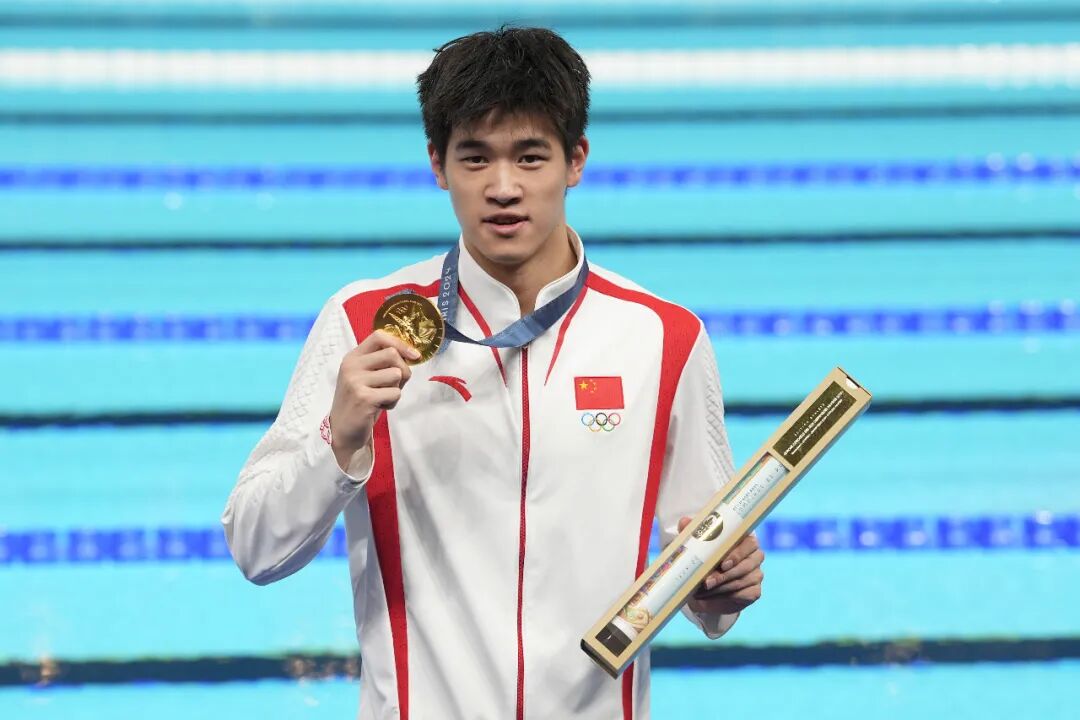
Men's 100m Freestyle World Record: Reaching New Heights (1)
Men's 100m Freestyle World Record: Reaching New Heights (2)
Men's 100m Freestyle World Record: Reaching New Heights (3)
Men's 100m Freestyle World Record: Reaching New Heights (4)
Men's 100m Freestyle World Record: Reaching New Heights (5)
Men's 100m Freestyle World Record: Reaching New Heights (6)
Men's 100m Freestyle World Record: Reaching New Heights (7)

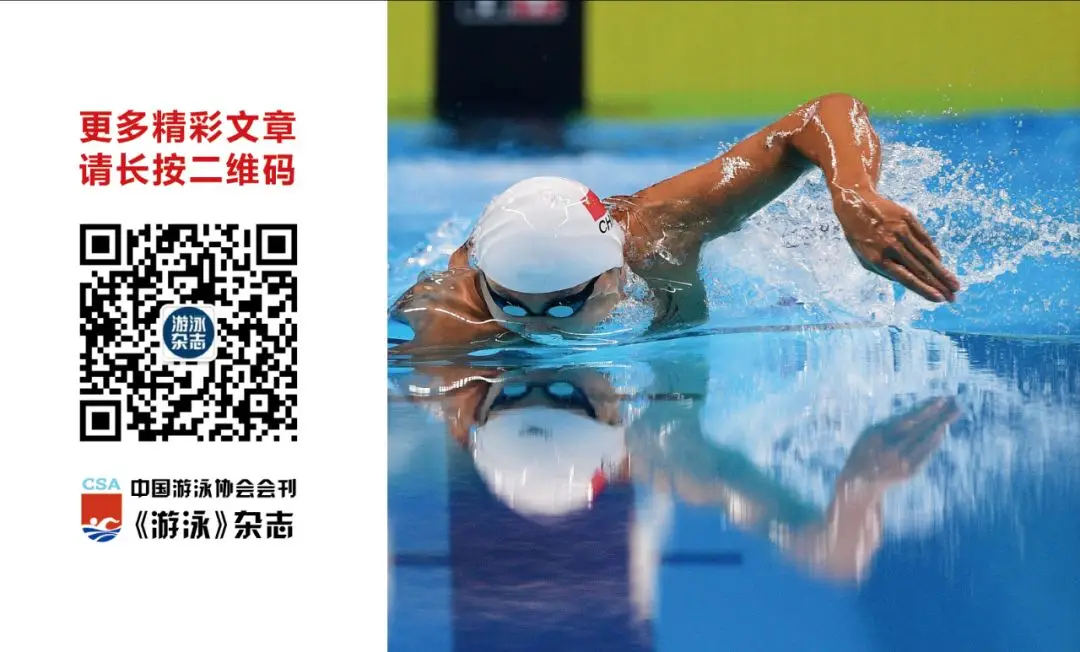
Related Articles
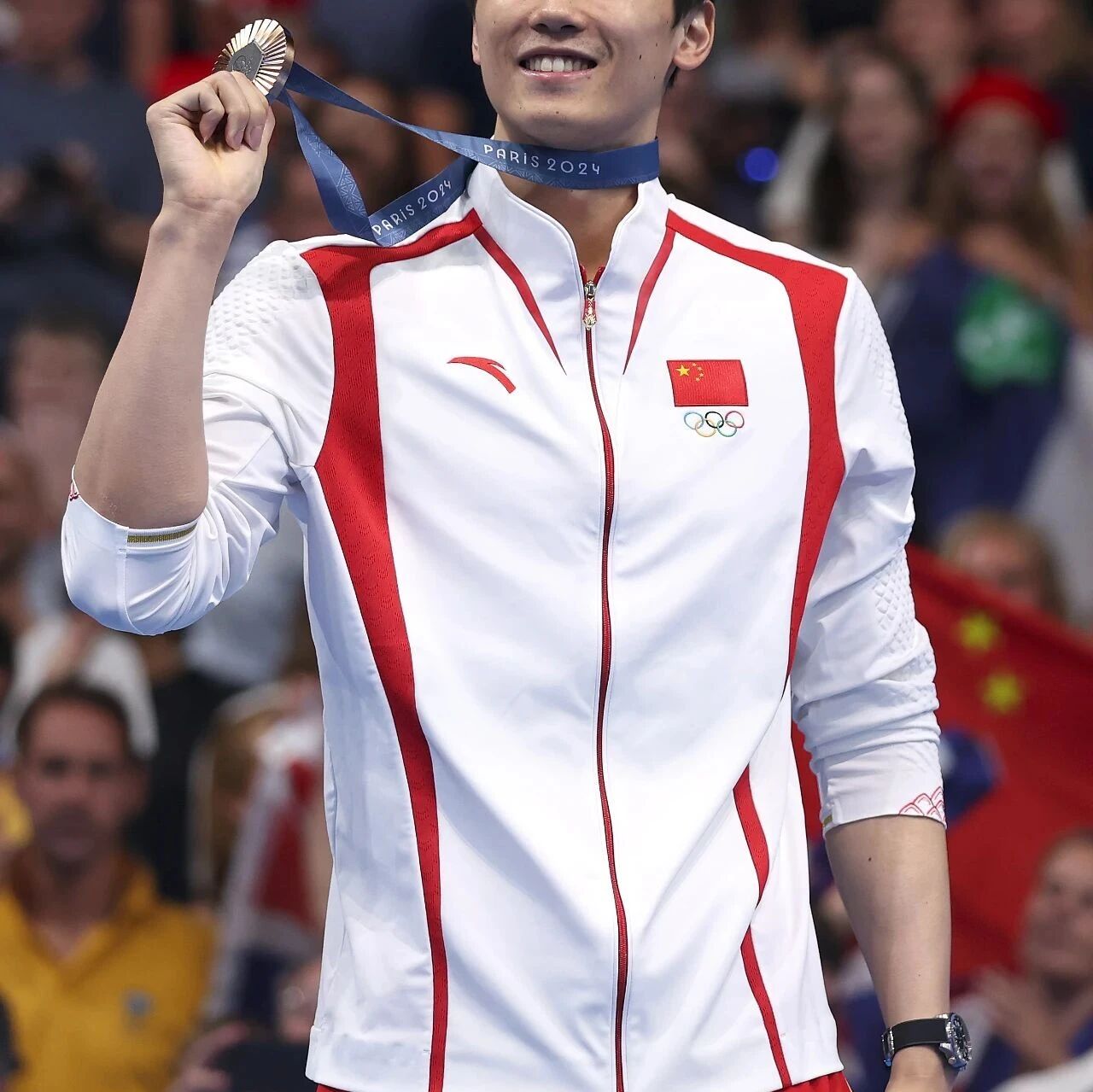
Wang Shun on the Los Angeles Olympics: "I won’t set limits for myself, nor will I put too much pressure on my shoulders."

Echoes of the 15th Games: These heartfelt words hold the most touching power of relentless striving.
